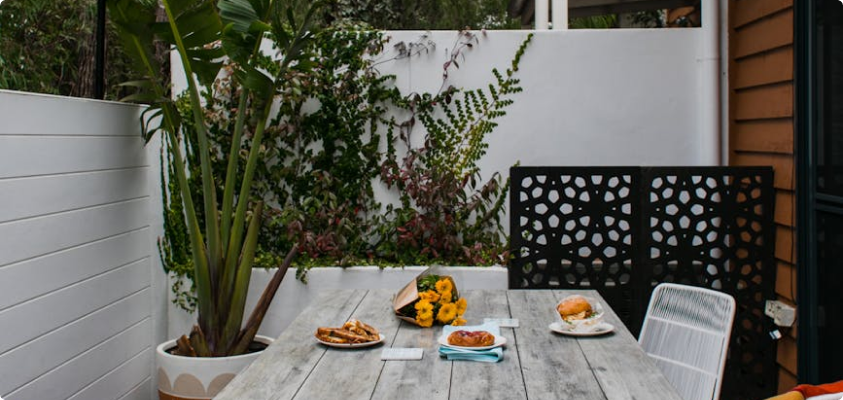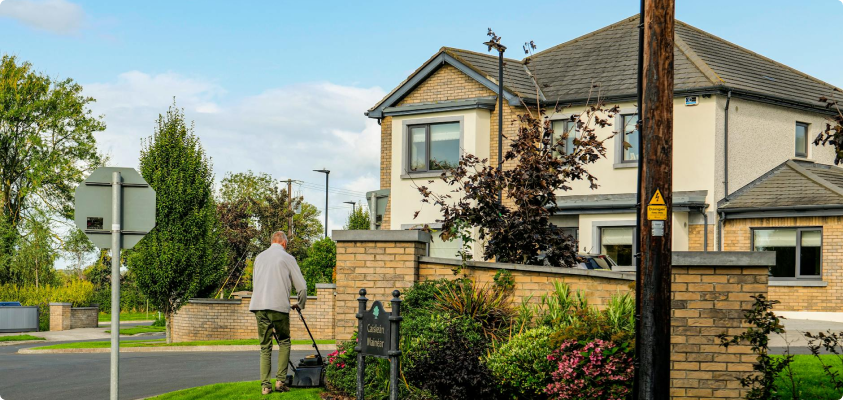1. Plan Your Garden
Define Your Goals:
- Purpose: Determine how you want to use your garden (e.g., relaxation, entertaining, growing vegetables).
- Style: Decide on a style that suits your taste, such as a cottage garden, modern minimalist, or rustic.
Create a Budget:
- Allocate Funds: Set a clear budget for different elements like plants, furniture, and decor.
- Prioritize: Focus on the most important aspects of your garden first, such as essential plants or hardscaping.
2. DIY Projects
Build Your Own Planters:
- Repurpose Materials: Use old wooden crates, pallets, or buckets to create unique planters.
- Tutorials: Follow online tutorials for building simple planter boxes or raised beds.
Create Garden Art:
- Upcycle Items: Turn old items like tires, teapots, or wooden pallets into garden art or functional decor.
- Paint and Decorate: Use paint to brighten up old pots or garden furniture.
Make Your Own Garden Furniture:
- Simple Designs: Build basic benches or tables using inexpensive materials like 2x4s.
- Repurpose: Transform old furniture or pallets into stylish garden seating.
3. Choose Budget-Friendly Plants
Opt for Perennials:
- Long-Lasting: Choose perennials that come back year after year, reducing the need for replanting.
- Local Varieties: Select plants that are native to your region, as they often require less maintenance and water.
Start from Seeds:
- Affordable: Buy seeds instead of seedlings to save money and grow a wider variety of plants.
- Seedling Swap: Exchange seeds or seedlings with friends or local gardening groups.
Shop Sales and Discounts:
- Seasonal Sales: Purchase plants and gardening supplies during sales or end-of-season discounts.
- Discount Stores: Check discount stores, garden centers, or online retailers for deals
4. Enhance Your Garden with Budget-Friendly Additions

Mulch and Ground Cover:
- Mulch: Use mulch to retain soil moisture, suppress weeds, and improve soil health.
- Ground Cover Plants: Choose low-cost ground cover plants to fill in empty spaces and reduce the need for weeding.
Lighting:
- Solar Lights: Install solar-powered garden lights for an affordable and eco-friendly lighting solution.
- DIY Lanterns: Make your own lanterns using mason jars, candles, or battery-operated lights.
Paths and Walkways:
- Stepping Stones: Use inexpensive stepping stones or pavers to create garden paths.
- Gravel or Sand: Create simple paths with gravel or sand for a cost-effective and low-maintenance option.
5. Maintenance and Upkeep
Regular Care:
- Weeding and Pruning: Keep up with weeding and pruning to maintain the health and appearance of your garden.
- Watering: Use a rain barrel or efficient watering methods to save on water costs.
Seasonal Adjustments:
- Winter Prep: Prepare your garden for winter by covering plants or adding protective mulch.
- Spring Refresh: Revitalize your garden in spring by adding fresh mulch or planting new seeds.
6. Create a Cozy and Inviting Atmosphere
Add Comfortable Seating:
- DIY Seating: Build or repurpose seating to create a comfortable area for relaxing.
- Outdoor Cushions: Use inexpensive outdoor cushions or throws to add comfort and style.
Incorporate Accessories:
- Pots and Planters: Mix and match different pots and planters to add variety.
- Decorative Elements: Add budget-friendly accessories like lanterns, wind chimes, or decorative stones.
Use Color and Texture:
- Bright Colors: Incorporate colorful flowers or accessories to create visual interest.
- Textural Contrast: Combine different textures, such as smooth stones and rough wood, for a dynamic look.
Conclusion
Creating a stunning garden on a budget is achievable with thoughtful planning and creative DIY projects. By focusing on cost-effective plants, repurposing materials, and making use of sales and discounts, you can design a beautiful outdoor space that enhances your home and provides a relaxing retreat. Embrace your creativity, prioritize your needs, and enjoy the process of transforming your garden into a personal haven.
